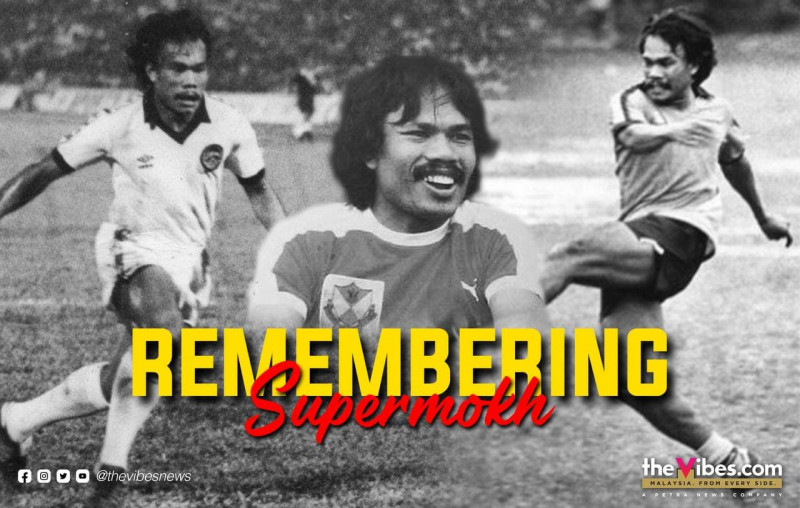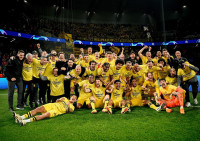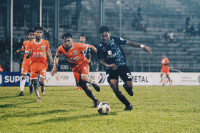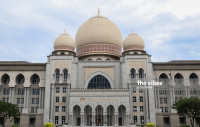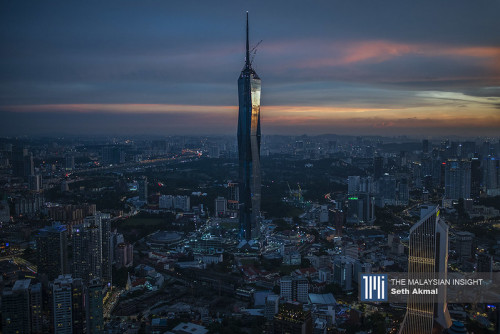Football is my blood and soul.” – Mokhtar Dahari
THERE must be something in our innate mythical impulse that urges us to imagine our legends and shape our dreams.
Any aspiring young footballer in the Kuala Lumpur of the 1970s and 1980s with even the most modest abilities would have, hung at the end of his well-worn school-tournament football boots, fantasies of an appearance at the greatest of sporting events the world has ever known – the World Cup.
First at hand, however, would be the task of conquering the “monster” team of the inter-school tournament – Victoria Institution (VI).
The school, among Malaysia’s most venerable, was set in the very heart of Kuala Lumpur. It boasted one of the largest playing fields in the country, located on the slope of Petaling Hill next to Stadium Merdeka.
Yet, the most nerve-racking image for any team entering that school field for competition was a single wall, placed at the far end of that extension of grass, incongruous for having no seeming architectural purpose, but crowded with rows of VI players kicking a ball against its facade.
It was, in sporting parlance, the (Muhammad) Ali “moment” of defeating the opponent even before a single (punch) kick needed to be set in motion.
That solitary wall, it is fabled, was where VI’s greatest offering to our sporting nation and collective life – Datuk Mokhtar Dahari – shaped his thighs and forged his incredible goal-scoring power.
The legendary Bill Shankly, manager of Liverpool, once wryly said: “Some people believe football is a matter of life and death. I am very disappointed with that attitude. I can assure you it is much, much more than that.”
That hyperbole, understood in real terms, has meant football encapsulating, in great parts of the world, all the forms of a national culture and character. Ranging from the unpalatable antics of football hooliganism and national tensions played out on the pitch to footballing styles defined by distinct cultural idioms, the sport has been described as the most immediate and elemental form of contemporary theatre.
In the early 1970s, as Kuala Lumpur (and the greater nation) was set to reconstruct a national community from the ashes and rubble of the events of May 13, 1969, much of our national rejuvenation would centre on happenings at the three-stadium point (Stadium Merdeka, Stadium Negara and Chin Woo Stadium) on the modest crest of Petaling Hill.
For Mokhtar, born in Setapak but later residing in the vicinity of Kg Pandan, the son of Maimon Sadikin and lorry driver Dahari Abeng, the daily bicycle ride from home to VI would prove especially symbolic.
“Spending time at school, Stadium Merdeka was always within view,” he would recall to the press, “and all I wanted at that time was to be able to play there one day.”
Football would take on another kind of seriousness for Mokhtar when, at the age of 15, he was gifted a RM15 pair of football boots by his father.
The passage that eventually led him onto the coveted pitch at Stadium Merdeka would be a conventional one: inter-school tournaments, where he impressed talent scouts, and state youth teams, till he finally got the opportunity to represent Selangor in the famed Burnley Cup tournament. In the final of that competition in 1971, held in Kuching, Sarawak, Selangor encountered Kedah, winning the match following an opening goal by Mokhtar.
By February 1972, he would be called up to the full Selangor team, and the following year, began acquiring the first of his many caps for the Malaysian national team.
In a period of great ascendency for Selangor and Malaysian football, Mokhtar was undoubtedly the Golden Boy. If he were to play in the commercial circus of professional football today, he would be the subject of T-shirts and corny merchandise.
In his time, however, he gave Selangor and Malaysia supporters so much more – he gave closeness and proximity. It is in this realm that Mokhtar and Stadium Merdeka, which he so loved, became indistinguishable from one another.
For all the victorious matches he played across states and even abroad, we would be hard-pressed to recall an especially singular performance.
At Stadium Merdeka, however, his relentless race against any form of defence line possessed a nerve and audacity never quite seen before, or since. His performances on this field appeared to realise everything this modest national monument was created for: liberation, intimacy, communion.
With supporters’ stands levelled so close to the pitch, it was possible to sense and feel, deeply, the anticipation of what Mokhtar might create in a single match.
And so, there were the two goals that saw Malaysia defeat Arsenal, the 30-yard blistering shot that drove past the England B team’s (then under the direction of Bobby Robson) famed goalkeeper Joe Corrigan, who would later recall that goal in the pages of Shoot magazine as among the best ever scored against him.
And, most memorably, the great contests that took place between Selangor and Singapore annually in the Malaysia Cup competition. Here, the anticipation was focused on the stand-off between Mokhtar and Singapore’s captain, the stout, sturdy defender Samad Allapitchay. At the best of times, their face-off might resemble a refined wrestling match.
As the tournament progressed and Singapore boasted their own whizz-kid in the form of Fandi Ahmad, attention would be on who outperformed the other in any match.
For all this, he was bequeathed the popular calling “Supermokh”, but that calling – all too technical a name – never seemed to encapsulate the versatility of one who could burst like a bull, and a moment later, twist like a ballerina. Within the closer settings of his own Selangor team, he was affectionately known as “kuda”, or horse, on which could be added the description “indah”, or beautiful.
While always impressive and faithful to the national team, it was apparent that Mokhtar’s heart was most consummately with Selangor.
Tactically fluid and expertly organised, the four-point assemblage that consolidated this team – the flamboyant R. Arumugam in goal, the steady Soh Chin Aun in the sweeper’s role, the sinewy Santokh Singh in defence, and Mokhtar blazing across the line – expressed the spirit of rejuvenation that defined that age.
With the then Selangor menteri besar Datuk Seri Harun Idris in a managerial role, and a then young Raja Muda, now Sultan Sharafuddin Idris Shah among the team’s greatest enthusiasts, the Selangor of Mokhtar and the rest transcended hierarchies and broke barriers of all kinds.
A few weeks ago, on the eve of the 30th anniversary of Mokhtar’s passing on July 11, 1991, FIFA issued a listing of the top scorers in international football’s recent history. Tied in first place are Cristiano Ronaldo and Iran footballing legend Ali Daei. In third place is Mokhtar.
Some years ago, a historian, who traded a path in football for history, wrote: “It is important, today, to remember and to convey the right emotion to our citizens that sport is not just entertainment: it serves to impress upon those who react warmly to it that love for one’s own country and fellow citizens is the prerequisite for the achievement of happiness and equanimity.”
That historian, Khoo Kay Kim, would take me, from the age of 5, to the low-level stands at Stadium Merdeka, to experience that closeness that was the magic of Mokhtar.
Once upon leaving those stands, he and I began a generational quarrel that would last his whole life: who, really, was the better player? Ghani Minhat (my father) or Mokhtar (me)?
It is an animated quarrel that, in spite of the historian’s recent passing, has endured to this. – The Vibes, July 11, 2021



